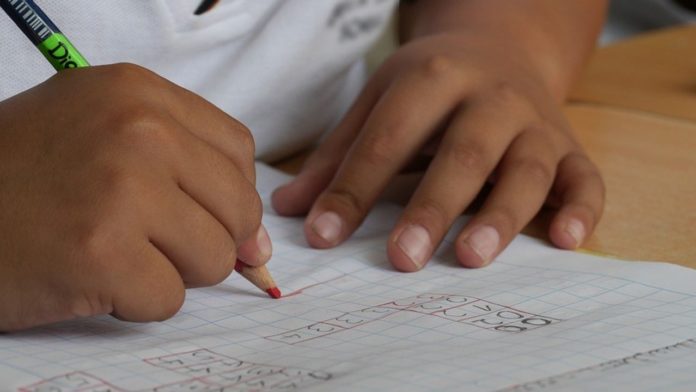The plans were in place. It was, after all, not the first time primary schools in the region have had to switch to digital education.
Nevertheless, the closure of these schools poses several difficulties. That’s according to SKOP, an educational umbrella organisation. They were, however, surprised by the Dutch cabinet’s decision.
As of today, in-school education has been discontinued across the board. Ingrid Sluiter, the SKPO director, understands the decision. Earlier it was announced that the Trudo school, part of SKPO, had to close. De Hobbitstee also had to close due to too many COVID-19 cases.
A single day
However, Sluiter thinks the decision will cause mountains of extra work for teaching staff. “The decision comes so suddenly. We had one day to prepare everything to teach kids at home until the Christmas holidays.”
“Of course, plan B was already in place. But, even so, everything had to be made ready in a single day. That requires a lot of extra effort from teachers.”
The closure of the schools surprised not only the teachers but also the pupils. “The kids had to suddenly get dressed up in their Christmas best. They wanted to show their classmates. It is especially sad for them,” says Sluiter.
Online schooling’s not for everyone
Ingrid foresees problems in offering online education too. It doesn’t suit everyone. “We try to mention learning disadvantages as little as possible. It’s not clear who or in what they’re lagging. What is clear is that the limitations cause issues.”
These difficulties are particularly evident among the youngest of primary school children. “You can’t put a child of 4, 5 or 6 in front of a tablet for three hours a day. It’s simply impossible. We have to find solutions for these kids. Their parents, may, for example, need extra help.”
Something has to be done because Groups 3 and 4 are important years for pupils. They learn to read and write, among other things. “They can still lean to write,” adds Sluiter.
“You have good teaching methods for that. This still needs to be checked. So, pupils show their writing skills on camera. That’s still possible.”
“Reading is a much bigger challenge,” she says. After all, learning to read is something else entirely. “You really need to learn how to do that. I wish parents could help, but it’s a special subject.”
There’s an upside
“Some pupils have parents who don’t speak Dutch very well themselves. For them, the problem is even greater.” But, there is an upside. “Some pupils made great strides with reading during the first lockdown. They simply enjoyed reading.”
It’s still difficult to say what damage this pandemic year has caused. “The annoying thing about the closure is that we normally have mid-year tests in the first weeks of January. Then we consider pupils’ current situation. That’s when we can see what’s going well and what needs to be improved.”
That important test week might now fall by the wayside. “These tests are usually taken after the two-week Christmas break. But there’s still plenty of teaching happening in the week before the holiday.”
“That will be different now, because of the closure. What’s more, there are now not two but four weeks in which students have had no lessons. So, how will those assessments go? Chances are that, even after January, this school closure’s effect will not be clear yet,” Sluiter concludes.
Source: Studio040
Translator: Bob
Editor: Melinda Walraven











